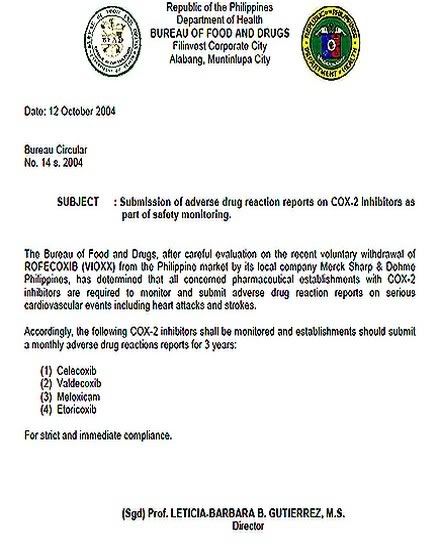A long-term analysis of people who took the arthritis drug Vioxx confirms it doubles the risk of strokes and heart attacks, researchers said on Monday, but this risk goes away a year after people stop taking it.
And other drugs in the same class of painkillers known as Cox-2 inhibitors may cause similar harm, they said.
"The good news is the data suggests that the risk doesn't persist forever. The risk goes back toward normal after a year of follow up," said Dr. Robert Bresalier of the M.D. Anderson Cancer Center at the University of Texas, whose study appears in the journal Lancet. ~ Reuters, 13 Oct 2008
You can read the study's abstract here.
Most prescription medicines are doubled-edged. Sure, they do what they are advertised to do, but not everyone reads the fine print that says that these medications are also sometimes responsible for unwanted side-effects. Yes, as in the rofecoxib or Vioxx case, no one wants to get those risks relating to heart attacks and stroke.
Prescription medicine defenders will say that it is all about probabilities. The said risks will only affect a small fraction of the population taking the medication. While that is true and doctors know that, too, what no one knows is who belongs to that small fraction. It can be anyone. And just because the unwanted risks affect only the small fraction does not lessen the importance of being careful when taking these medicines.
Patients depend on doctors when making a decision like this. Decision-making is a heavy burden for doctors most of the time, because there is really no fool-proof and sure way of knowing how each patient will react to a set of medications. Each patient is always unique, and therefore, clinical management is often, and must be tailored to the patient's needs.
The study above is an eye-opener. Let's hope it helps both doctors and patients in deciding what is the best treatment option available.
In the Philippines, Vioxx is said to have been voluntarily removed from the pharmacies by its manufacturer since 2004. I came across the BFAD letter below, but I still have no data what came about after this was issued.
